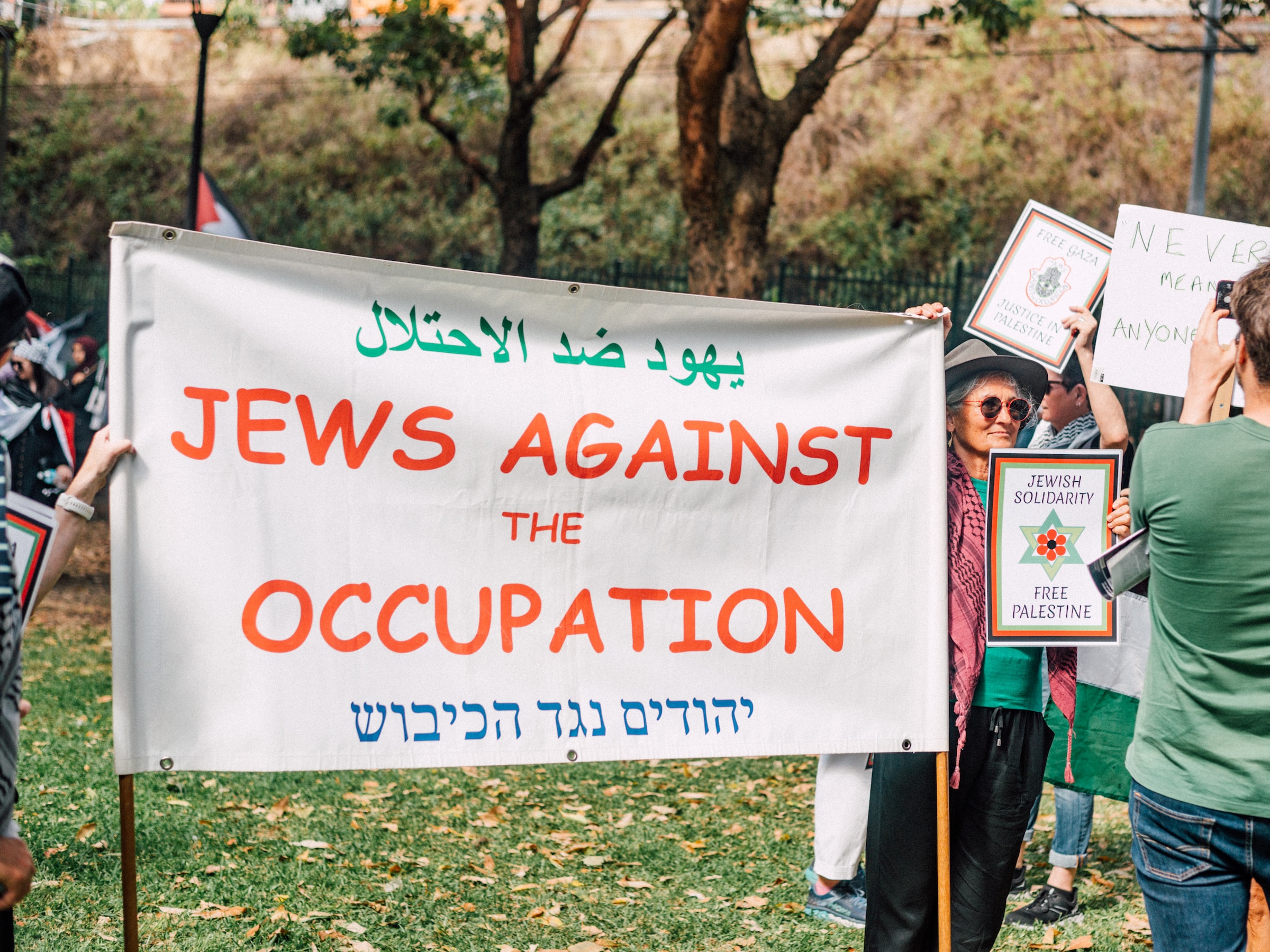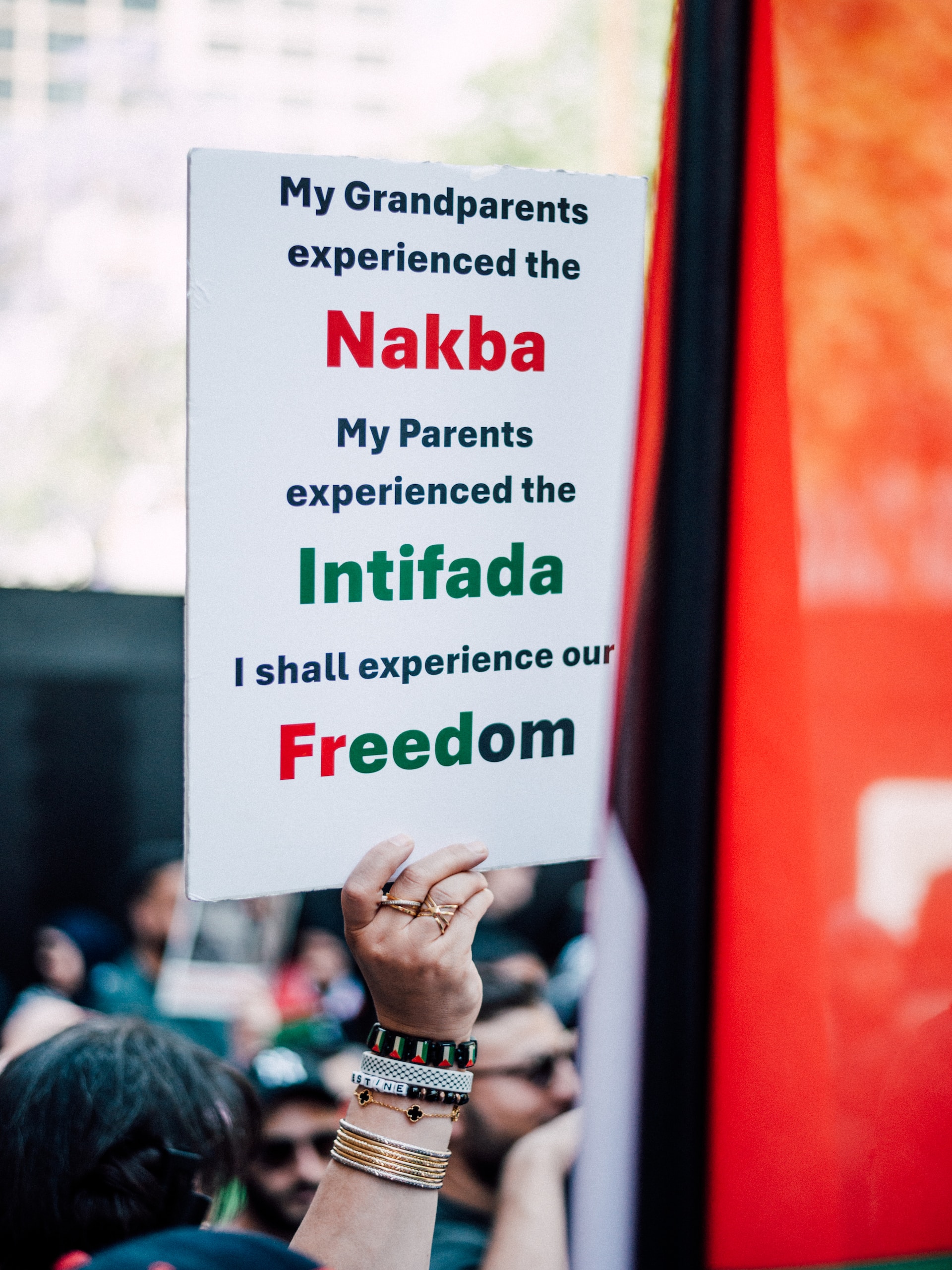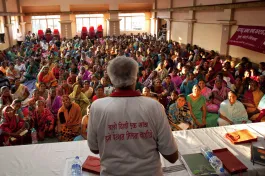Gaza is under a medieval siege. As of now, some 15,000 people including more than 4,000 children have been killed and thousands injured. Deprived of food, water, fuel, and shelter, a trapped and helpless population has nowhere to go, and no defence against a brutal aerial and ground assault. Yet few dare to call this a war crime.
The seven days “humanitarian pause” in late November to allow the exchange of 100 Israeli hostages for 240 Palestinian prisoners brought some respite and humanitarian aid to the beleaguered population of Gaza. But no longer. The calculus of death has begun again.
Unstated rules
Most of the Western media, in print and on the air, follow a few unstated rules for reporting on the events in Gaza. The narratives are set and boundaries are defined about what can be reported. Some criticism of Israeli action is permitted, if couched in prefatory disclaimers of it being in response to a dastardly attack on Israel. Even as the world is bombarded with distressing images of the death and destruction, and the daily slaughter and maiming of children, the elderly and infirm, the media on its part dissembles, tries to attenuate and justify the carnage. Taking their cue from this or perhaps due to their own domestic predilections, much of the Indian media follows a similar script, but much more stridently than in the West.
This is in marked contrast to the media reporting on Ukraine, where the details of the Russian aggression and brutality were endlessly highlighted, and rightly so. However, when it comes to Israel, many things are forbidden and there are some essential rules of reporting.
The first rule is to preface every story with reference to the 7 October attack by Hamas no matter the context of the report.
Described as the deadliest day for the Jews since the Holocaust, 7 October 2023, the day Hamas launched its attack on Israeli civilians, will be enshrined along with 11 September, 2001, as a day of infamy. What came before or after are mere footnotes in history.
A report in The New York Times, 28 November 2023 is a typical example: “In response to the devastating Oct. 7 attack on Israel by Hamas, the group that controls the Gaza Strip, Israel imposed what it called a complete siege.”
The second rule of reporting casualty figures of the civilians in Gaza is to add a caveat, “as reported by the Hamas-run Health Ministry of Gaza.”
“The Hamas-run health ministry in Gaza says more than 10,000 people have been killed in the Palestinian territory since Israel started bombing it last month.” - BBC News, 6 November 2023.
While this may be technically correct, the implied message is that it is not reliable. In fact, US President Joe Biden had publicly cast doubt on the accuracy of the numbers on civilian casualties that come from Gaza.

The third rule of reporting the death and destruction of civilians in Gaza is to quote Israeli sources in mitigation of their action.
The Israeli Defense Forces (IDF) are described as trying to “minimize civilian casualties”, or “exercise restraint”, and create “safe zones for civilians”. The brutal eviction of 1.1 million Gazans is a “ humanitarian gesture”.
“There was always a conscious effort to limit the number of civilian casualties in the few occasions that we have struck in areas where we knew that there would be civilian casualties,” according to Jonathan Conricus, the international spokesman for the IDF. The Washington Post, 5 November 2023.
Another pious hope from Anthony Blinken as the seven-day truce ended and Israel resumed its hostilities,
“The Israeli government agreed to form a “clear plan” for averting civilian deaths before resuming its assault of southern Gaza, Secretary of State Antony Blinken said Thursday, a sign of the intensifying U.S. pressure that Israel faces to recalibrate its approach amid the war’s grave humanitarian toll.” - The Washington Post, 30 November, 2023.
The fourth rule is to describe Israeli aggression as its right to self-defence, or as a war of survival.
Media reports and statements by Western leaders showing concern must also describe the Israeli action acting in self-defence.
“The French president, Emmanuel Macron, has called on Israel to agree a ceasefire in Gaza, saying that there was “no justification” for bombing civilians in the embattled territory. Macron also added that, “Israel had the right to protect itself after the 7 October Hamas attacks”, The Guardian, 10 November 2023.
“Israel has every right to defend itself, but we are very clear in our conversations with our friends in Israel that humanitarian aid also is part of the picture”, Chancellor Olaf Scholz addressing the German Parliament. - DW News, 19 October, 2023.
The fifth rule of reporting is to focus on anti-Semitism in covering protest rallies and marches in support of Palestine in many parts of Europe and the US.
The media cannot avoid covering the huge outpouring of public anger at the brutal assault on Gaza but looks for potential anti-Semitic messages in these marches. In particular, the slogan “From the River to the Sea, Palestine will be free” is singled out as hate speech. The use of this slogan may be problematic, with interpretations ranging from a call for genocide to a cry for the freedom of Palestine. But not so in the eyes of the West. Most commentators reflexively see it as hate speech and a call for the extermination of the state of Israel.
Here is Simon Sebag Montefiore writing in the The Atlantic, October 27, 2023,
“Some of this is happening out in the open, some behind the masks of humanitarianism and justice, and some in code, most famously “from the river to the sea,” a chilling phrase that implicitly endorses the killing or deportation of the 9 million Israelis.”
The slogan is implicitly associated with the original 1964 charter of the Palestine Liberation Organisation (PLO), which did not (at that time) recognize the state of Israel and more explicitly with the Hamas Charter of 2017. However, the media does not ever mention its Israeli counterpart version, in the very first Article of the original political platform (1977) of the Likud Party of Prime Minister Benjamin Netanyahu:
“The right of the Jewish people to the land of Israel is eternal and indisputable and is linked with the right to security and peace; therefore, Judea and Samaria will not be handed to any foreign administration; between the Sea and the Jordan (river) there will only be Israeli sovereignty.”
What explains the media bias?
What explains this asymmetry in reporting? There is a long history of pro-Israel reporting in the West, and a natural bias towards a nation which shares much of the Western civilisational values. Israel is seen as the bastion of Western democracy in the Middle East. The rising Islamophobia is another factor. Although much has been written about the history of Israel- Palestine conflict from different perspectives, the ever-present shadow of the Holocaust makes scholars and writers extremely wary of criticising Israel. Above all, there is the powerful Israeli lobby, which has weaponised the charge of anti-Semitism to attack any criticism of Israeli action.
Craig Mokhiber, who resigned as the Director of UN Human Rights in New York, in his last official communication, described the fear of the Israeli lobby.
“In recent decades, key parts of the UN have surrendered to the power of the US, and to fear of the Israel Lobby, to abandon these principles, and to retreat from international law itself. We have lost a lot in this abandonment, not least our own global credibility. But the Palestinian people have sustained the biggest losses as a result of our failures”.

The “Israel lobby”, an umbrella term that includes many organisations and groups, targets anyone perceived as critical of Israeli policies. Media watch groups like Honest Reporting, or the Orwellian-sounding CAMERA (Committee for Accuracy in Middle East Reporting and Analysis) monitor everything that appears in the media. Even innocuous reports do not escape scrutiny or censure. Some recent headlines from CAMERA are self-explanatory:
“After Mea Culpa, NY Times coverage of Gaza hospitals only gets worse”, referring to a New York Times report, on the attack on Gaza Hospitals, which apparently did not give full space to the Israeli response.
“CNN is Still Laundering Hamas Propaganda”, says one CAMERA report, referring to a CNN November 14 article by Nic Robertson, Rebecca Wright, John Torigoe, and David Shortell, who committed the ultimate transgression of quoting local health officials in Gaza dismissing the IDF claims of a Hamas “armoury” under a hospital.
“CNN’s Elbagir misleads on released Palestinian terrorists “ says another CAMERA report referring to a profile of two Palestinian women released from Israeli prisons in exchange for hostages.
Honest Reporting, a media watchdog based in the US, the UK and Israel is more direct in its approach. The following is prominently displayed on its website:
”Israel at War: The Media Battlefield – Briefing #10”
“Honest Reporting has been working around the clock to identify and respond to the worst media bias since the appalling events of October 7 and the subsequent launch of Israeli military action against Hamas”.
It encourages its supporters to send emails, comments and phone calls to the media to condemn an offending article (Phone numbers and contact details are supplied).
Systematic campaigns are launched against media organizations and individual reporters. Journalists perceived to be pro-Palestine are singled out and targeted. Emily Wilder was dismissed by the Associated Press, after a mere 17 days in her job, after a group called the Stanford College Republicans publicised her past Facebook and social media posts critical of Zionists and Israel as a student activist at Stanford. AP instead of backing her caved in to the pressure. Wilder, who is Jewish, summed up the media reporting as:
“Objectivity’ feels fickle when the basic terms we use to report news implicitly stake a claim,” she wrote. “Using ‘Israel’ but never ‘Palestine,’ or ‘war’ but not ‘siege and occupation’ are political choices – yet media make those exact choices all the time without being flagged as biased.” - The Guardian, November 21, 2023.
Then there are groups like PMW (Palestine Media Watch) and MEMRI (Middle East Media Research Institute) largely dedicated to counter the media stories seen as anti-Israel. The latter is a post-retirement sinecure for senior US government officials and others. Beyond these, there are the powerful lobby groups like the Anti-Defamation League and the AIPAC, which are dedicated to defending Israel and attacking its critics. Their power and influence over the media and politics in the US and in Europe is widely known.
Conclusions
Relentless campaigns, threats and pressures intimidate most reporters and academics, who would, given a choice, be more balanced in their reports. Major media organizations in the West, which are already pro-Israel were scarcely likely to stand up against these forces.
All this is not new. Even academic or scientific journals have not been exempt from criticism of bias. In 2009, the respected British Medical Journal (BMJ) published an analysis titled "Perils of Criticising Israel" in which the writer Karl Sabbagh discussed a report that had appeared in the journal in October 2004, of the killing and maiming of large numbers of Palestinians that may have been in violation of the Fourth Geneva Convention. Sabbagh wrote that provoked by the report, which had been backed by data from UN agencies, Honest Reporting had organised hundreds of responses and emails to the then Editor of the BMJ attacking the report and the author.
While the discussion here has been limited to English language media in the West, print and television reporting in German and French follows the same pattern. German media in particular, has been strongly pro-Israel for obvious historical reasons.
These pressure tactics have become common place elsewhere, especially in India for all sorts of causes. Reporting in the Indian media on Israel and Gaza is a similar story. While, the print media has been more restrained, television channels have adopted a virulently pro-Israel stand. However, this is more due to its domestic compulsions than external pressures. Right wing forces in India have made a common cause with Israel to push a domestic anti-Muslim agenda. Media reports have noticed a flood of misinformation targeting the Palestinians originating from Indian social media accounts. The initial unequivocal support from the Indian government combined with a large and vocal constituency of pro-Israel supporters, has generated a competitive hysteria and over-the-top media commentary in the channels. Unlike in the past, when there was broad support for the Palestinian cause, there is so much hostility to any form of Palestinian solidarity that public demonstrations and even academic discussions are being actively suppressed.
However, the tide of public opinion in the West is turning against Israel so much that media reports there are increasingly forced to challenge the Israeli narrative. The temporary “humanitarian pause” has ended amidst accusations by both sides, and Israel has resumed its offensive, this time in southern Gaza. The Western media reports are perhaps getting a bit more balanced. The New York Times in its recent (2 December) report on the Gaza casualties quotes the Gaza Health Ministry without mentioning Hamas, a progress of sorts.
But the fear of backlash remains, and not just in the media. I would conclude with this report from The Guardian, 22 November 2023:
A prestigious journal published by Harvard Law School has been accused of censorship after it refused to publish an academic article accusing Israel of committing genocide in Gaza, allegedly because editors feared a backlash.” The student editors of Harvard Law Review feared that their own careers could be jeopardised by having their personal details made public, a process known as 'doxxing'."
Kaushik Jayaram is a former central banker who worked for many years in an international financial organisation.









